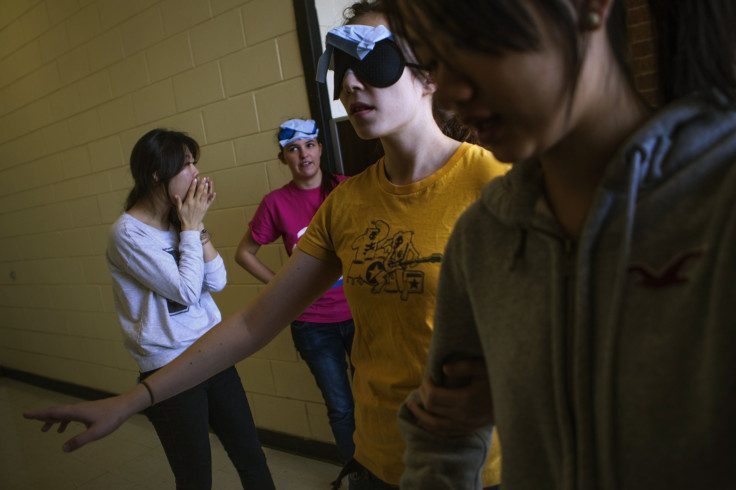Professor Steven Salaita Asks For Job Reinstatement After Anti-Israel Tweets

Professor Steven Salaita made his first public statement since the University of Illinois Urbana-Champaign rescinded an offer for a tenured position. The university retracted the offer, which Salaita had accepted, after he posted strong views against Israel’s strike on Gaza this summer on Twitter. UIUC offered Salaita a settlement to compensate for lost wages.
Until now, Salaita had not responded publicly. He held a press conference Tuesday and appealed to UIUC to reinstate him in the American Indian Studies program he was initially invited to join. The press conference was held following a student walkout in protest of Salaita's termination.
"I am here today at the University of Illinois," Salaita reportedly told the press conference, "to speak against my termination by the administration from a tenured faculty position because of the university's administration's objections to my speech that was critical of recent Israeli human rights violations." He spoke of experiencing hardship as a result of the university's decision, and said his wife had quit her own position at Virginia Tech upon his acceptance of the job offer.
Salaita was invited to join UIUC's faculty last October. Chancellor Phyllis Wise announced the decision to rescind the offer last month after Salaita posted the objectionable tweets, some of which were described by detractors as an "incitement to violence." Although many in the academic community rallied around Salaita and called the decision to withdraw the job offer an egregious threat to academic freedom, with some surmising the action was to appease donors who objected to Salaita's anti-Israel position, a number of faculty at UIUC supported the chancellor's decision and in a public statement described Salaita's tweets as expressing "hatred, bigotry and aggression."
"As hard as this situation is on me personally," Salaita said, "the danger of the university's decision has farther reaching implications. Universities are meant to … foster creative inquiry and, when at their best, challenge political, economic or social orthodoxy.”
“Tenure -- a concept that is well over 100 years old -- is supposed to be an ironclad guarantee that university officials respect these ideals, and do not succumb to financial pressure or political expediency by silencing controversial or unpopular views,” he added.
Professor Robert Warrior, director of the university's American Indian Studies Program, spoke of his admiration for Salaita and called the recent events a "disaster."
Salaita ended the press conference by expressing his continued desire to teach at the university. "I reiterate the demand that the university recognize the importance of respecting the faculty's hiring decision and reinstate me," he said. He added it was a "teaching moment" to have a "constructive conversation" about the substance of his viewpoints.
© Copyright IBTimes 2025. All rights reserved.





















